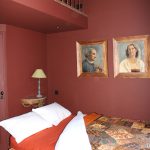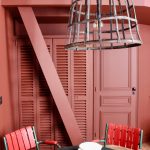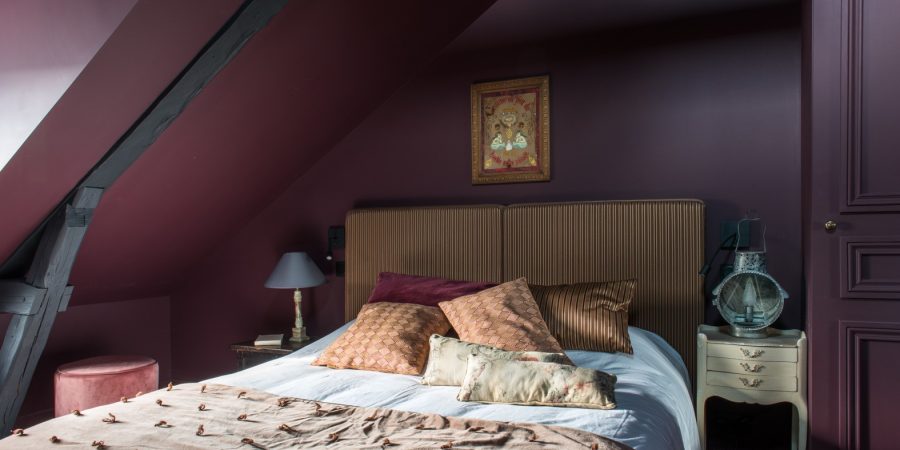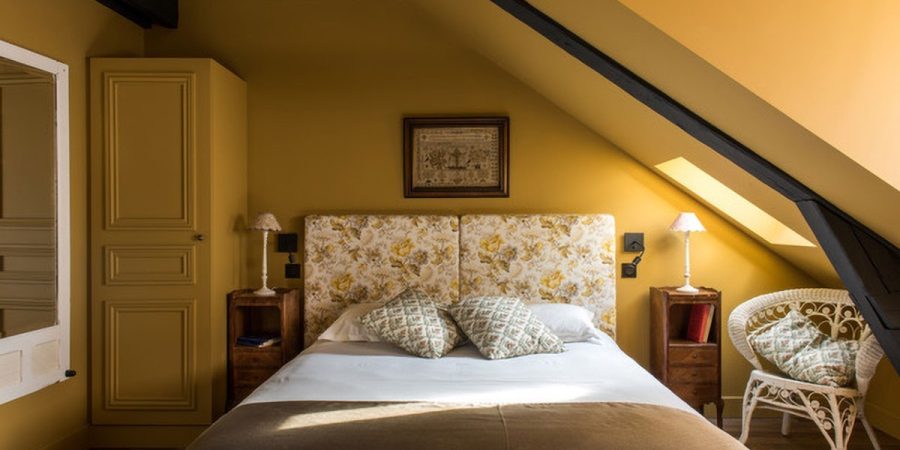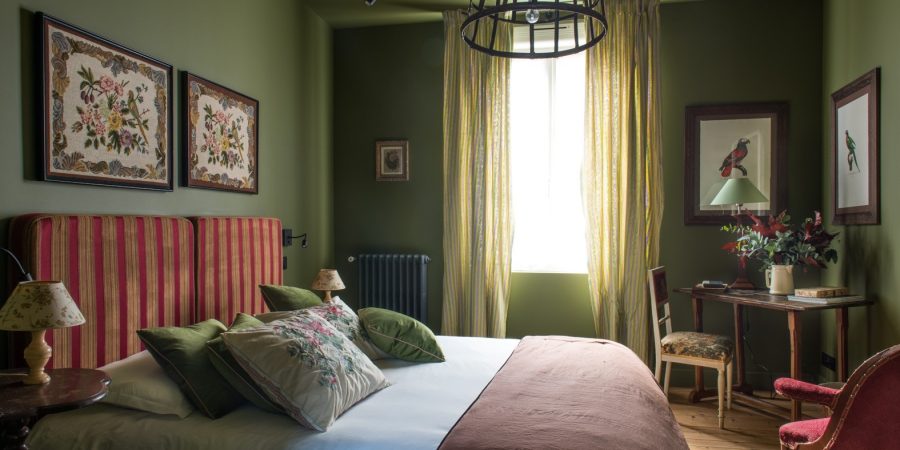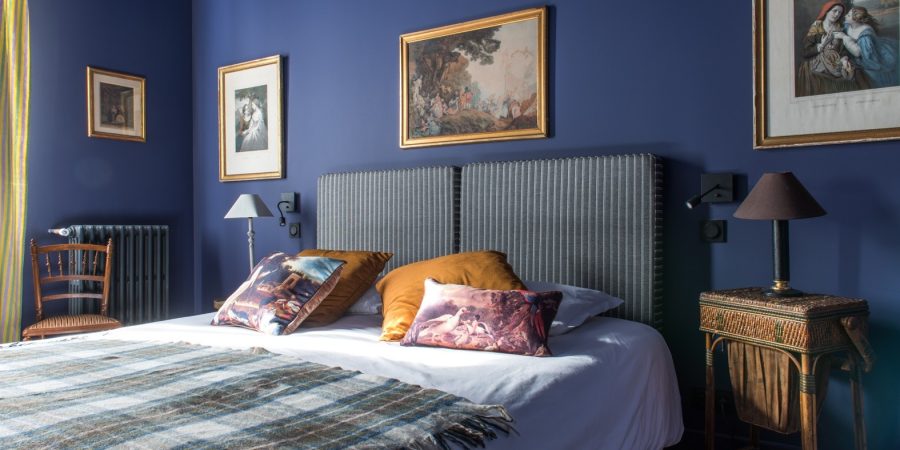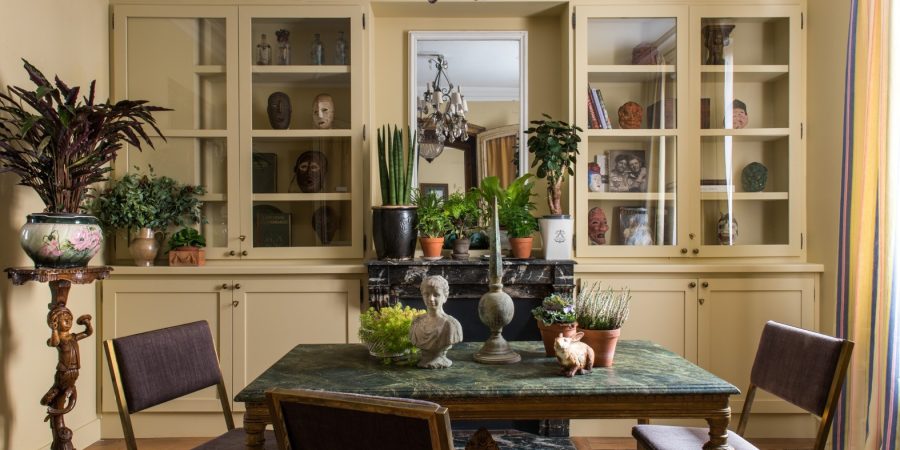Léopoldine
Léopoldine, named after one of Victor Hugo’s daughters, is an independent apartment located at the back of the Villa Augustine, and overlooking the small garden. Its high ceiling and incredible brick color (the confidential Deep Reddish Brown W101 from Farrow & Ball) give an incomparable character to this homestay accommodation. Its layout will enchant you: the bedding is on the mezzanine, accessed via a small ladder. This apartment in Upper Normandy comprises a fully equipped kitchen, a bathroom, a dining area and living space. It is one of a kind in Dieppe.
The bed (180X200 cm) comprises two high-quality futon mattresses (i.e., two mattresses of 90X200 cm), placed on thick tatamis. The softness and comfort of this bedding are unmatched: the guarantee for a wonderful night’s sleep in Dieppe. As the bedroom is on the mezzanine, headroom is limited to 1.35 meters. On each side of the bed, reading lights allow you to read without disturbing others.
The kitchen has all the equipment you will need during your stay to prepare your meals and breakfasts just like at home. The dining area is just opposite the living space that is perfect for relaxing and reading. A wonderful atmosphere of calm in which you can wind down. The bathroom features a large shower, a washbasin and a toilet.
Bed linen and towels are included with the rental of this apartment.
The surface area of apartment Léopoldine is approximately 28 m2 at floor level, plus the surface area of the mezzanine. For your convenience, a washing machine and a dryer are available in the laundry room of Villa Augustine.
But who was Léopoldine?
She is the muse of her father Victor Hugo, one of the greatest and best-known French writers, who is constantly by her side and only accepts her marriage under duress, after three years. Thereafter, Victor Hugo will behave as if his daughter no longer existed, causing her intense pain.
Hence the questions that arise about the accident (a boat ride on the Seine, in Villequier) that cost Léopoldine and her husband their lives.
After her death, Victor Hugo, is devastated and writes the heartbreaking poem:
Tomorrow, at dawn…
Tomorrow, at dawn, at the hour when the countryside whitens,
I will set out.
You see, I know that you wait for me.I will go by the forest, I will go by the mountain.
I can no longer remain far from you (…)



